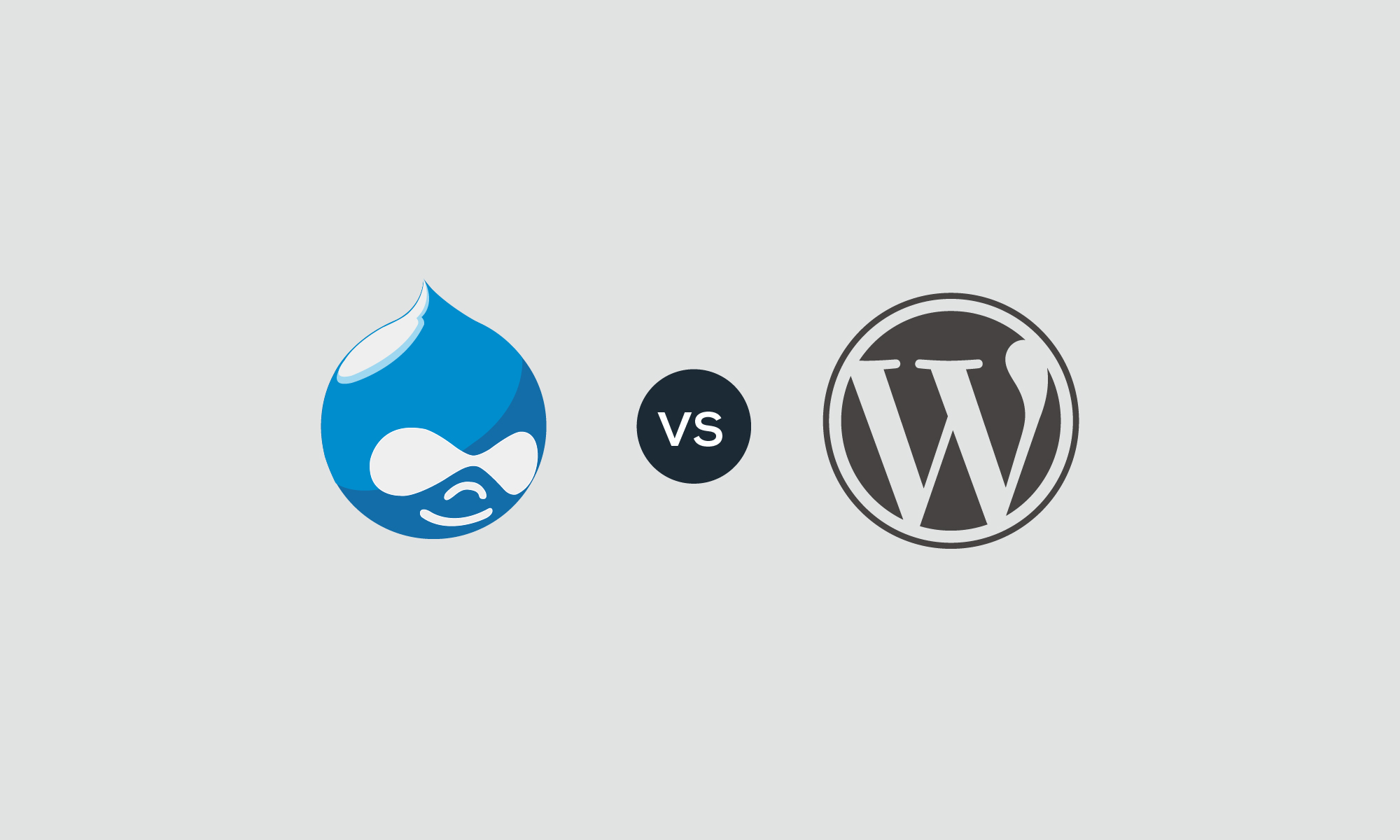Wordpress VS Drupal: Which is the Best CMS for You?
Content Management Systems (CMS) have been a booming trend over the years. While websites as a whole have become necessities for businesses, CMS’s are on the way to becoming essential for a long-lasting, secure and sustained website.

Content Management Systems (CMS) have been a booming trend over the years. While websites as a whole have become necessities for businesses, CMS’s are on the way to becoming essential for a long-lasting, secure and sustained website.
Using these systems generally makes building a website faster and more efficient. To top it off, CMS Software is Open-Source, meaning that it is open to the public for use and is constantly evolving through contribution from the community.
Which one should I pick?
The big question is: Which CMS is best for your needs? While there are countless to choose from today, two big names currently stand out in the industry: Wordpress & Drupal. These systems have grown over the years to become the most used CMSs in the top 100,000 websites in the world. While they both remain dominant, they are quite different from each other in architecture.
Starting with a quick look at their similarities, this blog article will once again put them side by side, outlining their main differences, their pros and their cons. As a result, you should have a clearer idea which out of the two will better serve your needs and requirements.
What can they BOTH do?
Wordpress & Drupal have many similar benefits. For starters, both offer outstanding administration dashboards for managing the content of your website. These interfaces have made it a lot easier for users without much technical expertise, to change content on their website with ease through user-friendly pages, without requiring the help of developers. In theory, most CMS’s offer this capability, but Wordpress & Drupal are generally considered amongst the top three CMS’s when it comes to usability and friendly administration interfaces, Joomla being the third.
Both Wordpress and Drupal have large communities that actively contribute to their evolution. Developers can design standalone features that synergize properly with the CMS’s and hand them out to the public, extending the system’s base functionalities.
Website Themes, which are pre-developed templates for your websites, are actively created and handed out within the community, sometimes free of charge. Themes can be a great help to website managers as well as developers since they can be used as a starting point for the basic look of the website. They can later be completely modified by the developer to suit the website manager’s needs.
The community also provides Plugins (or Modules for Drupal), which are extensions to the base functionality of the CMS. A great example of a plugin is Contact Form 7 for Wordpress, which facilitates the implementation of forms on your website, providing a friendly user-interface to configure and customize form fields. On the other hand, a great example for Drupal would be the Internationalization module, which greatly extends Drupal’s core translation capabilities.
Finally, both of these CMS’s are flexible and capable of building websites of various sizes, from small and simple, to large and complex.
How are they different?
Wordpress
Many people remember or still recognize Wordpress as a simple blogging platform, but over the years it has evolved into a full-fledged CMS that makes website development a lot easier for beginners.
Wordpress’ main charm is its simplicity, ease of use and out-of-the-box installation. It is fairly quick to setup and generally you can begin posting content on your website right after its installation.
The administration interface is easy to get used to, even for people without a lot of technical knowledge. As a result, Wordpress is currently the most favoured CMS in the world and has drawn the biggest community to it. However, Wordpress’ ease of use and user-friendly approach does not lower its potential. Wordpress is capable of making great and sustainable websites, especially with the help of the various plugins provided by the growing community.
Drupal
Drupal is a very robust CMS and is known for its great flexibility. Whether you want a simple website with 4 pages and nothing but content, or a large website with thousands of pages and users combined with complex functionalities, Drupal can handle it.
One of the things developers love about Drupal is the detailed and intricate administration interface. It can be fully customized to meet the needs of the website manager or content editor, but accomplishing that requires expertise and comfort of Drupal’s software. Drupal is known to have a steep learning curve, but has a lot of potential once mastered.
While Wordpress is user-friendly in general, Drupal tends to be considered developer-friendly instead, allowing a huge range of possibilities for developers to accomplish complicated functionalities using its software architecture. One terrific feature is the ability to fully customize permissions for users on your website without the need of additional modules.